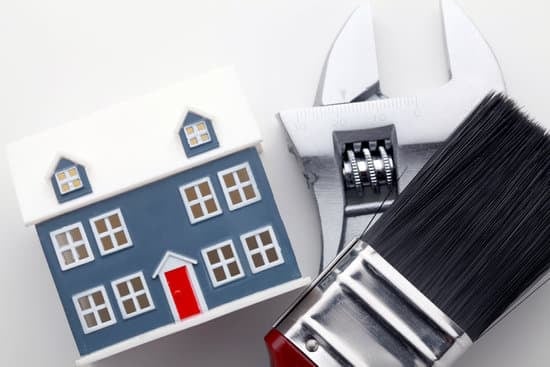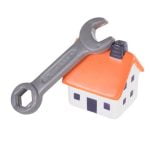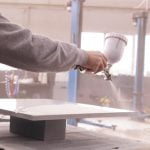Are you wondering what types of home improvement count towards your base value? When it comes to enhancing the value of your property, understanding the concept of base value is crucial. Base value refers to the intrinsic worth of a property, taking into account its location, size, condition, and other fundamental characteristics. In this article, we will explore the various types of home improvements that can contribute to increasing your property’s base value.
As homeowners, we often seek to improve our living spaces not only for our own enjoyment but also to increase the resale value of our homes. Whether it’s updating the interior, enhancing curb appeal, making structural changes, or investing in energy-efficient upgrades, every improvement has the potential to impact the base value of your property.
By understanding which types of home improvements are most effective in adding value, you can make informed decisions about how to best invest in your property.
Throughout this article, we will delve into specific categories of home improvements and their respective impacts on a property’s base value. From interior renovations and exterior upgrades to structural changes and energy-efficient enhancements, each section will provide valuable insights for homeowners looking to elevate their property’s overall worth.
Additionally, we will highlight the importance of regular maintenance and repairs in preserving or increasing your home’s base value over time. So let’s get started on the journey towards maximizing the potential value of your home through strategic home improvements.
Interior Home Improvements
When it comes to increasing your home’s base value, interior home improvements can make a significant impact. These types of upgrades not only enhance the aesthetic appeal of your property but also contribute to its overall worth. Some popular interior renovations that can add value to your home include kitchen and bathroom remodels, flooring replacements, and modernizing the layout of the living space.
Kitchen renovations are often considered one of the most impactful interior improvements in terms of boosting a home’s value. Installing new cabinets, countertops, and energy-efficient appliances can significantly increase your property’s base value. Likewise, bathroom remodels with updated fixtures, lighting, and modern design elements can also have a positive effect on your home’s worth.
Another type of interior improvement that counts towards your base value is updating the flooring throughout your home. Whether you choose hardwood, laminate, or tile, replacing outdated floors can instantly elevate the overall look and feel of your property while adding financial value.
In addition to these specific upgrades, modernizing the layout of the living space can also contribute to increasing your home’s base value. This may involve removing walls to create an open floor plan, adding built-in storage solutions, or incorporating smart home technology to improve functionality and appeal. By focusing on these interior improvements, you can effectively raise the base value of your home for potential future buyers or for personal satisfaction.
| Interior Home Improvements | Impact on Base Value |
|---|---|
| Kitchen Renovations | Significantly increases base value |
| Bathroom Remodels | Positive effect on base value |
| Flooring Replacements | Elevates overall look and adds financial value |
| Modernizing Layout | Improves functionality and appeal |
Exterior Home Improvements
When it comes to increasing the base value of your home, exterior renovations play a crucial role in creating a lasting impression. From boosting curb appeal to enhancing the overall look and feel of your property, these improvements can significantly impact the value of your home. Here are some key types of exterior home improvements that can contribute to your base value:
1. Landscaping: A well-maintained and attractive landscape can instantly elevate your home’s curb appeal, making it more appealing to potential buyers. Simple upgrades such as planting colorful flowers, trimming overgrown bushes, and keeping the lawn manicured can go a long way in improving the overall look of your property.
2. Exterior Painting: A fresh coat of paint on the exterior walls, doors, and trims can breathe new life into your home’s appearance. Opting for modern and inviting colors can help create a welcoming atmosphere and enhance the aesthetic appeal of your property.
3. Outdoor Living Spaces: Creating functional outdoor spaces such as a deck, patio, or backyard garden can extend the livable area of your home and add value to your property. These outdoor enhancements provide additional space for relaxation and entertainment, which is highly desirable for many homeowners.
In addition to these types of exterior renovations, it’s important to consider other factors such as roofing repairs, window replacements, and garage door upgrades when evaluating what types of home improvement count towards your base value. By focusing on enhancing both the aesthetic appeal and functionality of your property’s exterior, you can increase its overall worth while creating an inviting atmosphere for current and future residents alike.
Structural Changes
When it comes to increasing the base value of your home, structural changes can have a significant impact. Adding an extra room or expanding the living space can not only enhance the functionality of your property but also boost its overall worth. Whether you’re looking to accommodate a growing family or create additional entertainment space, these types of home improvements can pay off in terms of increasing your home’s base value.
Here are some examples of structural changes that can contribute to your home’s base value:
- Adding a new room: Whether it’s a bedroom, office, or recreational area, adding a new room can increase the square footage and usability of your home.
- Expanding the living space: This could involve knocking down walls to create an open-plan layout or extending the footprint of your property to create a larger living area.
It’s important to note that when considering structural changes for enhancing your home’s base value, it’s essential to consult with professionals such as architects and contractors. They can provide valuable insights into what types of structural changes will best suit your property and add the most value.
Energy-Efficient Upgrades
When considering which home improvements count towards your base value, energy-efficient upgrades are an essential factor to take into account. These types of improvements not only contribute to a more sustainable and eco-friendly living environment but can also significantly boost the overall value of your home. From solar panels to insulation, these energy-efficient upgrades have the potential to enhance the appeal and worth of your property.
Solar Panels
One of the most impactful energy-efficient upgrades you can make to your home is the installation of solar panels. Not only do they reduce your reliance on traditional energy sources, but they also have the potential to generate significant cost savings on your electricity bills. Furthermore, homes with solar panels are often perceived as environmentally friendly and cutting-edge, which can add considerable value to your property in the eyes of potential buyers.
Insulation
Proper insulation is another crucial factor in determining the base value of your home. Insulation helps regulate indoor temperatures more effectively, reducing energy consumption for heating and cooling purposes. This not only leads to lower utility bills but also increases the overall comfort of the living space. Potential buyers are often attracted to homes with adequate insulation as it signals energy efficiency and cost savings in the long run.
In summary, when assessing what types of home improvement count towards your base value, it’s important to consider energy-efficient upgrades such as solar panels and insulation. These enhancements not only contribute to a more sustainable and eco-friendly living environment but also have the potential to significantly increase the overall value of your property.
By investing in energy-efficient improvements, homeowners can enjoy cost savings on utility bills while adding appeal and worth to their homes for future resale opportunities.
Kitchen and Bathroom Renovations
When it comes to increasing the base value of your home, kitchen and bathroom renovations are key areas to focus on. These spaces are often considered the heart of the home and can significantly impact potential buyers’ impressions. Modernizing these key areas can not only enhance your daily living experience but also attract higher offers when it comes time to sell.
Upgrading Fixtures and Appliances
One way to boost the base value of your home through kitchen and bathroom renovations is by upgrading fixtures and appliances. This could include installing energy-efficient lighting, modern faucets, and high-quality countertops in the kitchen, as well as luxurious shower heads, stylish vanities, and efficient toilets in the bathroom. These upgrades not only improve the aesthetics of these spaces but also enhance functionality and convenience.
Improving Layout and Flow
Another aspect to consider when modernizing your kitchen and bathroom is improving their layout and flow. This may involve reconfiguring the space to create a more open floor plan, adding a kitchen island for additional workspace, or rearranging fixtures in the bathroom for better use of space. A well-thought-out layout can make these areas more inviting and practical, ultimately increasing their appeal to potential buyers.
Enhancing Style and Design
Finally, updating the style and design of your kitchen and bathrooms can have a significant impact on your home’s base value. This might involve replacing outdated cabinetry with sleek, modern designs, using trendy tile backsplashes or statement hardware, or incorporating contemporary color schemes that are attractive to a wide range of preferences. By enhancing the visual appeal of these spaces, you can elevate the overall perceived value of your home.
Landscaping and Outdoor Enhancements
When it comes to adding value to your home, landscaping and outdoor enhancements play a significant role in increasing your property’s overall worth. A well-maintained and visually appealing outdoor space can greatly enhance the curb appeal of your home, making it more attractive to potential buyers. In fact, studies have shown that high-quality landscaping can increase property values by up to 20%.
Landscaping improvements that count towards your base value include features such as a well-manicured lawn, strategically placed trees and shrubs, colorful flower beds, pathways and hardscaping elements like patios or decks. These outdoor enhancements not only make your property more aesthetically pleasing but also create functional outdoor living spaces that can be enjoyed by homeowners.
Furthermore, outdoor upgrades such as installing an irrigation system, outdoor lighting, or a water feature can also add value to your home by enhancing its functionality and creating a more enjoyable outdoor environment. It is important to note that when it comes time to sell your home, potential buyers will often take these outdoor enhancements into consideration, which can ultimately impact the resale value of your property.
| Outdoor Upgrades | Impact on Property Value |
|---|---|
| A well-maintained lawn | Increases curb appeal and overall property attractiveness |
| Hardscaping elements (patios, decks) | Creates functional outdoor living spaces and adds visual interest |
| Irrigation system/Outdoor lighting | Enhances the functionality of the outdoor space and makes it more enjoyable for homeowners |
Home Maintenance and Repairs
In conclusion, there are various types of home improvement projects that can have a positive impact on your property’s base value. From interior and exterior renovations to structural changes and energy-efficient upgrades, each improvement plays a role in increasing the worth of your home. It is essential to consider these factors when planning and prioritizing home improvement projects.
Additionally, focusing on kitchen and bathroom renovations, as well as landscaping and outdoor enhancements, can significantly contribute to enhancing your home’s base value. These areas not only improve the aesthetic appeal of your property but also add functionality and charm, which are highly desirable to potential buyers. Furthermore, regular maintenance and repairs are crucial in preserving the value of your home over time.
Ultimately, understanding what types of home improvement count towards your base value is vital for homeowners looking to increase their property’s worth. By considering a variety of improvements such as interior and exterior renovations, structural changes, energy-efficient upgrades, kitchen and bathroom renovations, landscaping enhancements, and regular maintenance and repairs, homeowners can make informed decisions that will positively impact their property’s base value in the long run.
It’s important to carefully assess the potential return on investment for each improvement before undertaking any project.
Frequently Asked Questions
What Improvements Count as Cost Basis?
Improvements that count as cost basis include any expenses related to the purchase, construction, or renovation of a property. This can include things like adding a swimming pool, installing a new roof, or building an additional room.
What Does the IRS Consider Home Improvements?
The IRS considers home improvements as any upgrades that add value to the property, prolong its useful life, or adapt it to new uses. This can encompass renovations like kitchen remodels, bathroom additions, and even landscaping improvements.
What Cannot Be Included in the Cost Basis of a Main Home?
Certain expenses cannot be included in the cost basis of a main home, such as the price of furniture or appliances, costs for routine repairs and maintenance, and any expenses related to buying or selling the property (like real estate agent commissions). These are considered separate from the overall cost basis.

I’m thrilled to have you here as a part of the Remodeling Top community. This is where my journey as an architect and remodeling enthusiast intersects with your passion for transforming houses into dream homes.





